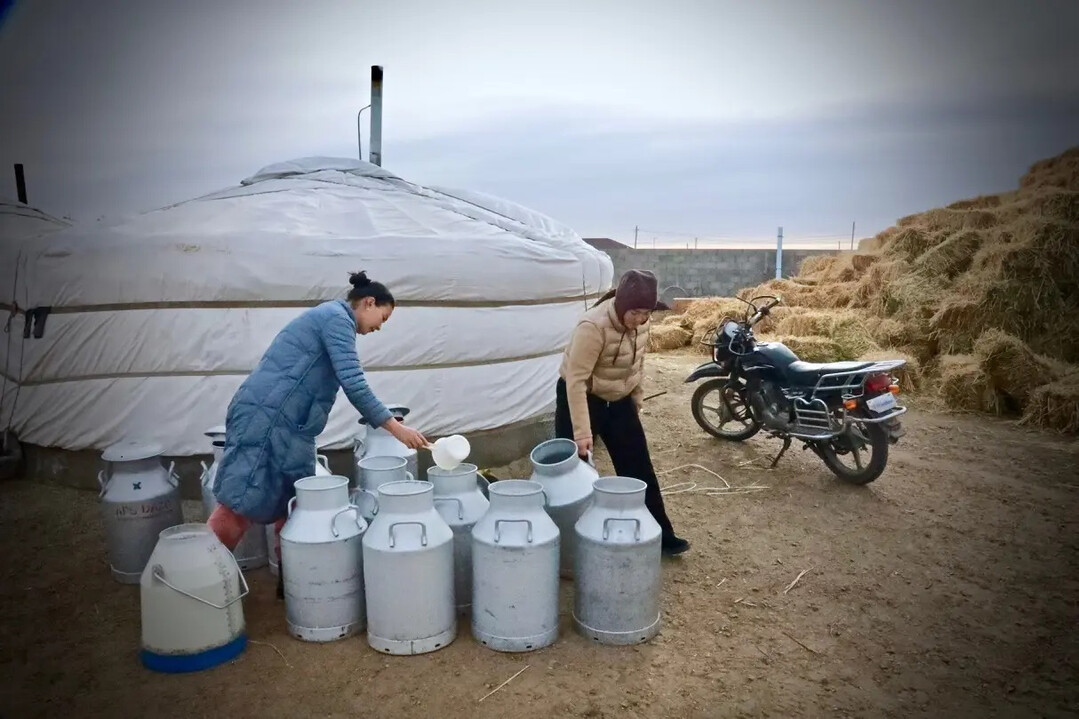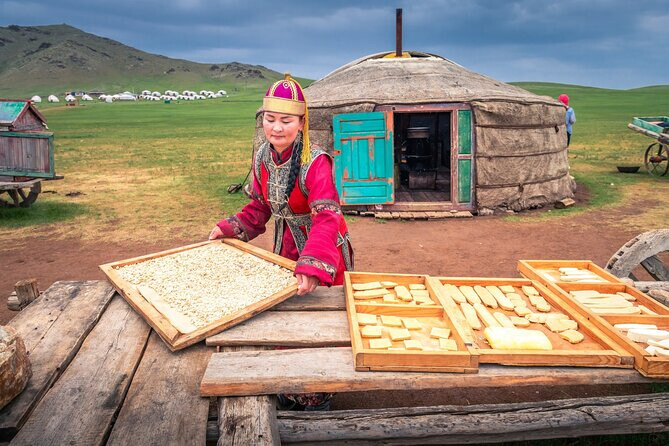
Ulaanbaatar – On the sprawling grasslands of the Jargalant region in Mongolia, where cows graze peacefully, Byambasuren Davaajav (65), a local dairy farmer, has chosen a path of independent collaboration. Eschewing membership in large-scale commercial cooperatives, he established his own cooperative with 20 like-minded neighbors. His conviction is unwavering: the milk produced by him and his community should be sold under their own name.
Davaajav's initiative draws potential inspiration from South Korea's developmental experience in the 1970s. Tsevegmed Munkhnasan, a high-ranking official at Mongolia's Ministry of Food, Agriculture and Light Industry, revealed in an interview that Mongolia has benchmarked Korea's Saemaul Undong (New Village Movement) to launch its own campaign encouraging the formation of one cooperative per soum (district). Speaking near Sukhbaatar Square in Ulaanbaatar, Director Munkhnasan explained that the Korean experience has formed the basis of the 'New Cooperative – Wealthy Nomads' model, adapted to the Mongolian context, which notably allows for the establishment of multiple cooperatives within a single soum.
The Saemaul Undong was a nationwide movement in South Korea during the 1970s that sought to modernize the rural economy through village-level cooperative production activities. Director Munkhnasan further noted, "Through the Korea Partnership for Innovation of Agriculture (KOPIA), under the Rural Development Administration, Korea has also actively supported the development of livestock feed and feed processing technology for Mongolian nomads." He also emphasized that his ministry consistently receives advanced Korean agricultural technology and knowledge through the Livestock Technology Promotion Center under the Mongolian University of Life Sciences, established with support from the Korea International Cooperation Agency (KOICA).
Since establishing its local office in Ulaanbaatar in 1995, KOICA has been implementing Official Development Assistance (ODA) projects across a wide range of sectors in Mongolia, including education, public health, women's empowerment, and livestock policy. In the Jargalant region, approximately 140km from downtown Ulaanbaatar, KOICA has been implementing a 6.3 billion KRW (roughly $4.6 million USD) ODA program since 2021, aiming to "maximize the added value of nomads" and promote "inclusive livestock development." This program, in collaboration with the Korean NGO Global Civic Sharing, contributes to streamlining milk production, processing, and distribution stages by supporting dairy farmers in forming their own cooperatives.
Nomads Dream of Self-Reliance
In 2018, Davaajav established the 'Urmun Shargal Cooperative' with 20 residents of the Jargalant village. His vision for a cooperative was solidified after the devastating dzuds (severe winters with heavy snowfall and ice) between 1999 and 2001, which resulted in the death of 11 million livestock in Mongolia. He recalled that the financial support from KOICA and Global Civic Sharing was instrumental in realizing his long-held aspiration.
Davaajav hesitated to join large commercial cooperatives like Suu JSC or APU Dairy, which offered higher milk prices. Although Global Civic Sharing purchases milk at the same price as these major companies, Davaajav emphasized that his cooperative's greatest advantage lies in its ability to process milk at its own factory and sell it directly to the market, bypassing intermediate distribution stages. "When our products are sold in the market, additional profits are returned to the cooperative members in the form of dividends," he explained.
Global Civic Sharing constructed a milk processing plant in 2018 to process milk produced by 'Jargalant Milk,' a joint cooperative consisting of the Urmun Shargal Cooperative, the Khaan Shargal Cooperative, and the Deediin Shargal Cooperative. This plant has been fully operational since July 2019. Batdorj Narangerel, Director of Global Civic Sharing's Mongolia office, stated, "Our factory processes an average of 300 to 700 liters of milk per day."
During a reporter's visit on April 15th, facility improvement work, including the installation of sterilization equipment, was underway at the plant. Director Narangerel explained that they are aiming to obtain ISO 9001 certification, an international quality management standard, which will contribute to market expansion and increased consumer preference. Currently, Global Civic Sharing purchases milk from cooperative members to produce pasteurized milk, butter, and dried curd, which are sold at Mongolia's Emart and Nomin supermarkets.

Quality Cows, More Milk
This transformation across the dairy industry's value chain was not achieved overnight; it is the culmination of years of effort. After establishing the cooperative, Davaajav prioritized improving the genetic quality of the village's cows. He believed that high-quality dairy cows were essential for increased productivity, and his idea aligned with Global Civic Sharing's artificial insemination support program.
Director Narangerel explained, "After the collapse of Mongolia's socialist system in the 1990s, the livestock health management system also broke down. Crossbred cows, not properly managed, were born, and this situation persisted for about 30 years." In response, Global Civic Sharing secured high-quality frozen semen from foreign breeds through the Mongolian National Center for Animal Genetic Resources and implemented artificial insemination in cows, increasing the number of healthy dairy cattle.
According to Director Narangerel, purchasing a mature cow with superior genetics costs approximately 6 million Mongolian Tugrik (around $1,695 USD), while the cost of one artificial insemination is significantly lower at about 80,000 Mongolian Tugrik. Davaajav proudly stated, "Through genetic improvement, the average daily milk production of our 11 cows has significantly increased to about 120 liters. This is a remarkable change compared to the previous production of about 20 liters per day from eight cows." These efforts led to his recognition as an exemplary livestock farmer by the Ulaanbaatar City Government last year.
Bigger Dreams, Closer Cooperation
Now, the dairy farmers of the Jargalant region and Global Civic Sharing are moving towards new goals. Cho Hyun-ju, Secretary-General of Global Civic Sharing, stated, "If the first phase of the project (2021-present) focused on building basic infrastructure, the upcoming second phase aims to systematize management processes and expand the project to other regions beyond Jargalant."
Mongolia's Ministry of Food, Agriculture and Light Industry also anticipates broader bilateral cooperation with South Korea, ranging from agricultural technology transfer to environmental projects. Director Munkhnasan expressed hope that Mongolians who have learned livestock technology in Korea will be able to localize and apply their experiences in the field upon their return. He also added, "In the livestock sector, which accounts for half of Mongolia's total greenhouse gas emissions, we hope there will be opportunities for Korean environmental experts to share their greenhouse gas reduction know-how with Mongolian officials."
Furthermore, Director Munkhnasan requested South Korea's active support for the preservation of Mongolia's nomadic culture and livestock industry in the upcoming 'International Year of Rangelands and Pastoralists' designated by the United Nations next year. He emphasized, "Korea voted in favor of the UN's designation of the 'International Year of Rangelands and Pastoralists.' We hope that productive cooperation between the two countries in the field of resource management and utilization will lead to tangible results in the livestock sector."
[Copyright (c) Global Economic Times. All Rights Reserved.]






























